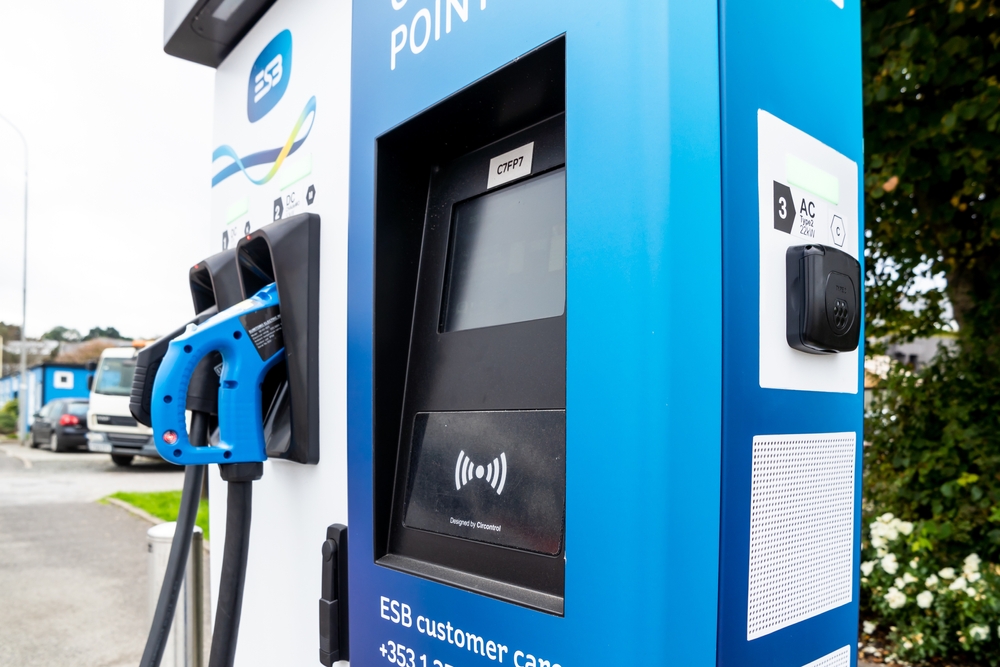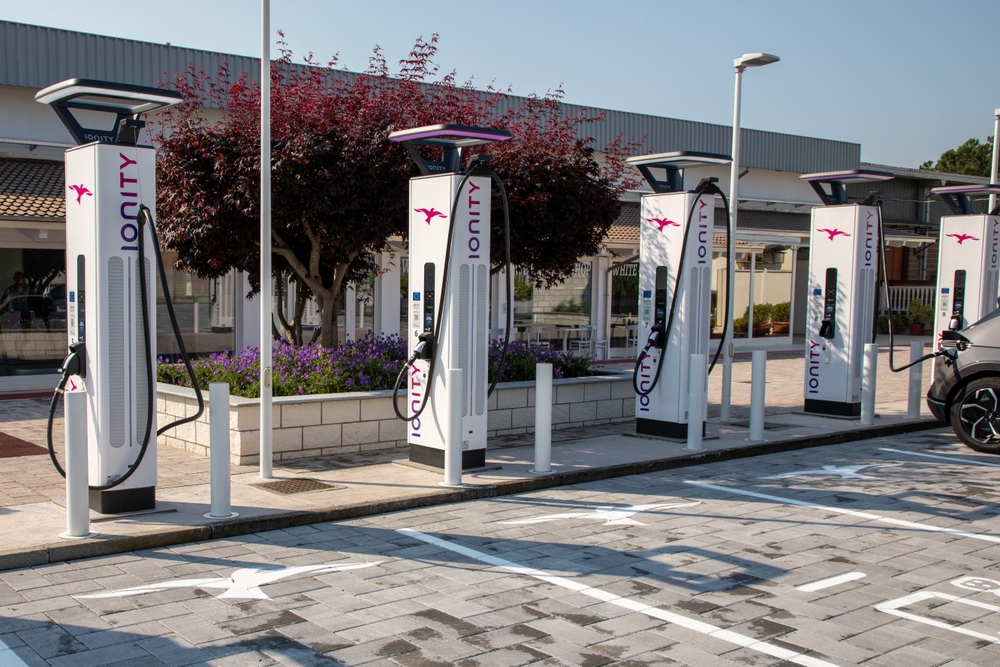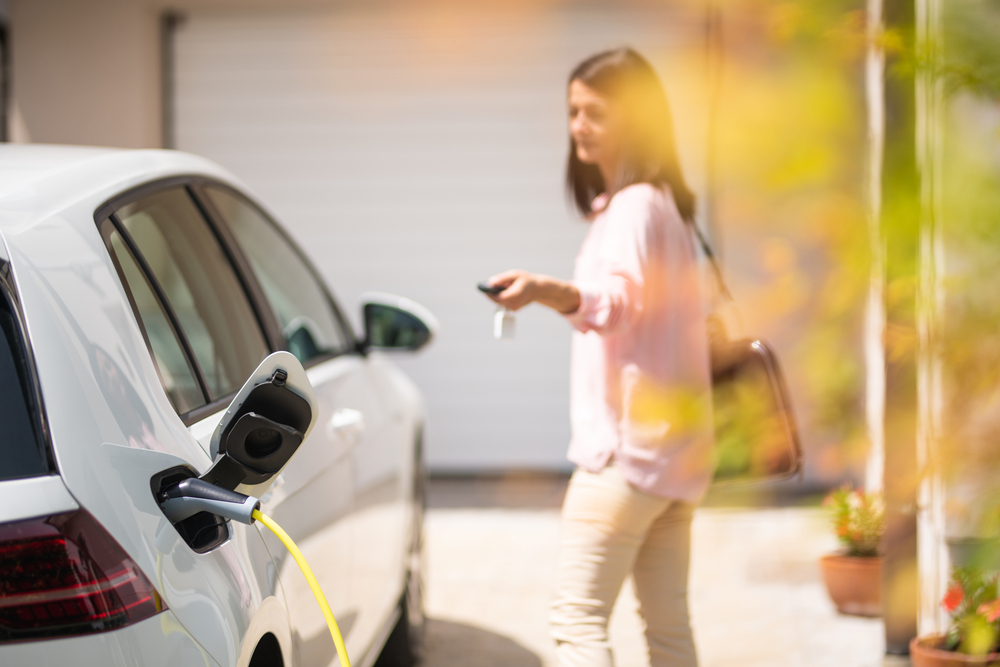When the price of electricity — and energy in general — spiked in the wake of Russia’s invasion of Ukraine in 2022, there was little surprise that the cost of charging an electric car went up too. Obviously, the cost of charging at home rose in line with a general climb in domestic electricity prices, but the cost of charging at public charging points also went up.
In fact, in November 2022 the cost of using a 50kW ESB ecars fast charger went from 41c per kWh to 65c per kWh. The slower 22kW chargers also saw a significant rise, from 35c to 56c per kWh, while the headline rate for the fastest chargers — 150kW and above — went from 44c to 68c per kWh.
ESB wasn’t the only one raising its prices at that time. IONITY, the charging provider which was formed from a coming-together of Ford, Mercedes, Volkswagen, Audi, BMW and latterly Hyundai and Kia, always charged top prices for its pay-as-you-go charging rate — 78c per kWh — but there was the option of paying a monthly subscription fee to bring that down to 38c per kWh. In the era of lofty energy prices, IONITY also raised this subscription price to 56c per kWh.
Now though, energy prices are in retreat once again, and while we are not quite yet down to pre-invasion pricing, the cost of charging an electric car at a public charging point has finally started to fall — some nine months after we were first promised that it would.
In fact, the ESB told The Irish Times last August that prices for public charging should start to fall by the late Autumn of 2023, but it’s only in the past few weeks that this has finally started to come true.
The ESB has trimmed its charging rates by as much as 13 per cent, meaning that prices have now fallen to 59c per kWh for fast chargers of 150kW or above; to 57c per kWh on chargers with power between 50kW and 100kW; and to 52c per kWh on chargers of 22kW and below.
If you’ve signed up to ESB’s €4.99 monthly charging subscription, then the prices will now be 54c per kWh for the fastest chargers, 52c per kWh for medium-speed chargers between 50kW and 100kW, and 47c per kWh for 22kW chargers. Again, these are not as cheap as once they were, but at least prices are heading in the right direction.

However, the penalty for staying too long on a charging point are going the other way. Previously, the ESB charged users a flat €8 penalty if they charged for more than 45 minutes on a rapid DC charger of 50kW or above. That has now changed to a penalty of 50c per minute once you spend more than 45 minutes on a fast charger of 50kW and above, and after ten hours on a slow 22kW charger. The maximum penalty is capped at €22.50, however.
Commenting on the charging price reductions, John Byrne, Head of eMobility at ESB, said: “We are pleased to announce a reduction of prices across our extensive EV public charging network. We are lowering our prices following reductions in wholesale energy costs while continuing to upgrade and improve our charging infrastructure across the country. We keep our prices under constant review and are committed to providing value to our customers with competitive prices.”
ESB isn’t the only one cutting its prices as IONITY has now also started to pare back the cost of using one of its very rapid 350kW chargers. The top rate of 78c per kWh for pay-as-you-go customers has been brought down to a slightly more reasonable 70c per kWh, and beyond that IONITY has introduced two new subscription plans.
Previously, there was a single monthly fee which brought charging costs down to 56c/kWh, but now there are two, tailored for those who cover small distances each month and only need an occasional IONITY top-up, and one for those who need more regular use.
IONTIY’s Passport Motion is the more affordable, lower-mileage one which costs €3.99 for the first month and €5.99 thereafter, and which brings the cost of charging down to 50c per kWh. If you’re a higher-mileage user, there’s Passport Power, which costs €7.99 for the first month and €11.99 thereafter, and which brings the charging price down to 42c per kWh.

It’s worth bearing in mind, however, that if you’re a regular visitor to Northern Ireland, IONITY has not cut its pay-as-you-go prices there, and still charges 74p per kWh, but that does come down to 53p or 43p if you’re on one of the Passport subscriptions. The IONITY price cut is especially good for those thinking of bringing their electric car for a European driving holiday, as it means that in France, for example, you can bring the cost of charging down to just 33c per kWh, while in some countries in Eastern Europe it falls to as little as 26c per kWh.
As far as home charging is concerned, prices have come down for domestic rates, and those on the most competitive possible night rate electricity will have seen their per kWh cost fall to as little as 8c — cheap enough that you could charge a long-range Volkswagen ID.4 from empty to full for just €6.16.

However, a survey by Switcher.ie found that in terms of home charging costs, Ireland is the second-most-expensive country in Europe, behind only Germany with a price of €22.55 per full charge, using the latest Eurostat average domestic electricity costs. Switcher estimates that on average, Irish electric car drivers charging at home pay €6.66 for every 100km they travel, while those in Germany pay €7.06. Those in the UK, by comparison, pay the equivalent of €5.79 per 100km, while the cheapest charging in Europe is in Bulgaria, with a cost of just €2.09 per 100km (with the caveat that Bulgaria’s electric car market is currently very under-developed and most of its electricity still comes from coal-fired power plants).
Eoin Clarke, commercial director of Switcher.ie, said: “Switcher.ie’s latest research found the average cost of home charging is still on the up, but prices fluctuate hugely across the EU, with some countries seeing sharp drops and others experiencing steep hikes in 2023. This is largely due to government supports during the energy crisis and ever-changing global headwinds which impact countries differently. Although electricity costs are still historically high, energy prices have peaked and electric vehicles are nowhere near as financially draining as petrol or diesel vehicles are to keep on the road. Electric vehicle sales have seen a downturn recently as many governments phase out initiatives like purchase grants and tax benefits, but as motorists seek a haven from hefty fuel-pump prices it’s likely the electric vehicle market will rebound and continue to thrive.”